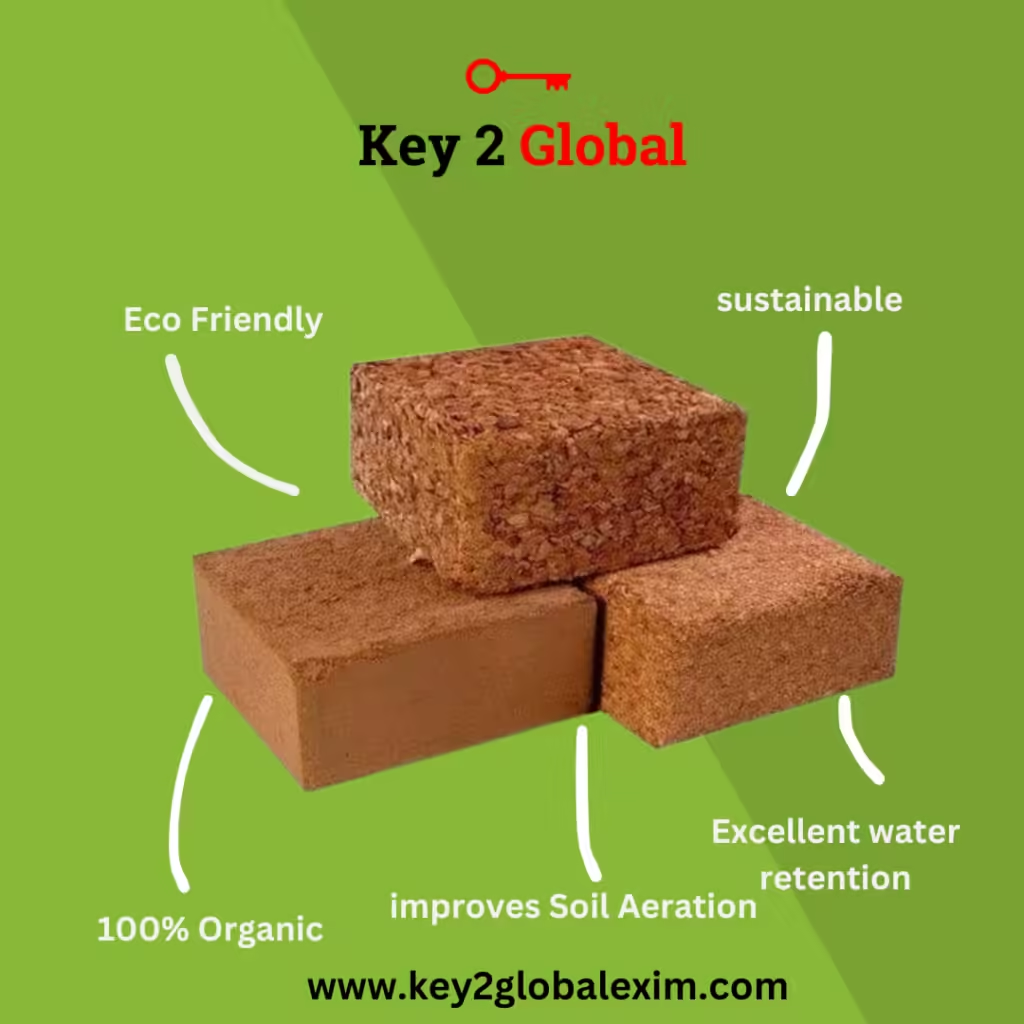What Makes Indian Cocopeat Superior? A Deep Dive into Quality and Processing
Cocopeat, a byproduct of coconut processing, has gained immense popularity as a sustainable growing medium in agriculture and horticulture worldwide. India, being one of the largest producers of coconuts, has established itself as a leading exporter of high-quality cocopeat. But what makes Indian cocopeat superior to its competitors? Let’s explore its quality, processing methods, and global demand.
1. Rich Raw Material Source
India is home to vast coconut plantations, especially in states like Tamil Nadu, Kerala, Karnataka, and Andhra Pradesh. The high-quality coconut husks from these regions provide a superior base for cocopeat production. The abundant availability of fresh raw material ensures consistent quality and supply.
2. Advanced Processing Techniques
The superiority of Indian cocopeat lies in its meticulous processing, which includes:
a) Proper Washing & Buffering
Raw cocopeat contains high levels of salt and tannins, which can hinder plant growth. Indian manufacturers follow rigorous washing and buffering techniques using fresh water to reduce the electrical conductivity (EC) and ensure the product is suitable for agricultural use.
b) Efficient Sieving & Grading
Indian exporters employ advanced sieving techniques to remove fine dust and achieve the desired coarseness. Cocopeat is classified into different grades based on particle size, water retention capacity, and aeration properties, making it suitable for various applications.
c) Low EC vs. High EC Cocopeat
- Low EC Cocopeat (Washed): Ideal for greenhouse cultivation, hydroponics, and seed germination as it has minimal salt content.
- High EC Cocopeat (Unwashed): Suitable for non-agricultural purposes like soil conditioning and animal bedding.
India is known for producing premium low EC cocopeat, making it highly sought after by global agricultural industries.
3. Superior Water Retention & Aeration
One of the biggest advantages of Indian cocopeat is its ability to retain water while maintaining excellent aeration. This property makes it an eco-friendly alternative to peat moss, reducing water consumption and promoting healthier root development in plants.
4. Sustainable and Eco-Friendly Practices
Indian cocopeat manufacturers emphasize eco-friendly practices:
- Using natural drying techniques to reduce energy consumption.
- Recycling coconut waste to create biodegradable and organic products.
- Following zero-waste processing, where even coconut fibers and chips are used in various industries.
5. Global Compliance & Certifications
Indian cocopeat exporters comply with international standards, ensuring product quality and safety. Many companies hold certifications like:
✔ ISO 9001:2015 (Quality Management)
✔ OMRI (Organic Materials Review Institute) for organic farming
✔ RHP Certification (for European markets)
✔ Phytosanitary compliance for export
These certifications make Indian cocopeat a trusted choice for global buyers.
6. Customization & Packaging Options
Indian exporters offer a wide range of cocopeat products customized to meet the specific needs of different industries, including:
- Cocopeat Blocks (5kg, 650g) – Ideal for large-scale farming and retail.
- Grow Bags – Perfect for greenhouse farming and hydroponics.
- Coco Discs & Pellets – Used in nurseries and seedling propagation.
Additionally, Indian suppliers provide customized packaging solutions to cater to different international markets, ensuring ease of transportation and handling.
Conclusion
Indian cocopeat stands out due to its superior quality, sustainable processing, excellent water retention, and compliance with global standards. As the demand for organic and sustainable growing media rises, India continues to lead as a trusted supplier of premium cocopeat worldwide.

